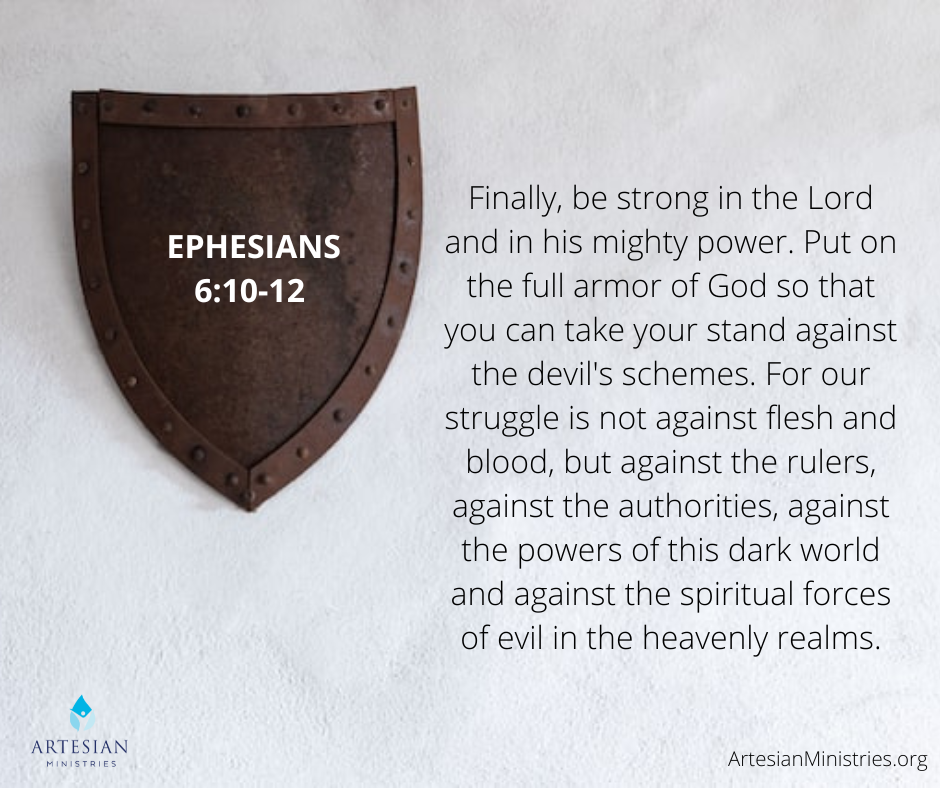The Philistines had captured David in Gath. And even though he was a prisoner of war during that difficult time, David penned these beautiful words: “You keep track of all my sorrows. You have collected all my tears in your bottle. You have recorded each one in your book” (Psalm 56:8, NLT).

David had every reason to cry and experience sorrow. He could have easily slung anger in God’s direction. Instead, he turned his face toward God to receive comfort.
But his words may raise a question. Did David mean that God used literal bottles as tear catchers, or was it simply a figure of speech?
It Takes a Lot of Tears to Fill a Bottle
Life happens, and as a result, so do tears. Whether we shed tears of joy or sadness or simply when God moves us in our soul, every tear holds meaning to Him. Pause to allow that truth to sink in for a moment. With seven billion plus people on the planet, God not only knows your name but notices each and every time you shed a tear.
In other words, our tears are not futile. They are not silly or a sign of weakness. Nor are they a waste of time as we impatiently desire to simply move on. Shedding tears reminds us of our humanity and vulnerability. We would be hard-pressed to recall every time we shed tears throughout our lifetime. But our heavenly Father remembers.

Tear Bottles in Antiquity
A quick history of the tear bottle in ancient Rome is in order. Around the time of Christ, Roman tear bottles were fairly common. Mourners in Roman times would capture their tears in small glass bottles and leave them in burial tombs as a symbol of respect.
Legend even says that during the Roman period sometimes women were paid to capture their tears in bottles as they accompanied the funeral procession of a deceased person. The more they cried and the more tears they captured, the more they were compensated, according to legend in biblical times.
Tear Bottles in the Victorian Era
Also known as lachrymatory bottles, tear bottles appeared once again during the 19th century in the Victorian era as a sign of mourning lost loved ones:
“The Victorian era is also known for its fascination with death. Elaborate rituals surrounded the everyday occurrences of dying and grieving, and it was in this environment that tear bottles re-surfaced as a popular icon of grief and grieving.”

Tear Bottles During America’s Civil War
Since the U.S. Civil War happened during the Victorian era, the resurgence of a tear vial or tear jar goes hand-in-hand with that tragic time in our country’s history:
“Stories of soldiers leaving their wives or new brides with a tear bottle can be found in the literature of the day. Some husbands are said to have hoped that the bottles with special stoppers would be full upon their return, as an indication of their wives’ devotion. Sadly, many of these men never made it back home.”
Is David’s Reference to God’s Tear Bottle Based on Fact?
As David endured that dark season in his life, he poured out the words of Psalm 56 to the Lord. Were David’s words simply wishful thinking, poetic language, or the fact that God actually bottles our tears?
Scholars generally agree that King David was using the metaphor of a small bottle to signify remembrance. By capturing the image of God catching our tears, we are reminded that God remembers and cares about our suffering.

In writing those words, David expresses a deep, abiding trust in God and His watch care over His children. Even when no one around us sees our tears, God sees each one. And David calls attention to that truth in the very next verse: “This I know, God is for me” (Psalm 56:9, ESV).
This I know. David knew that God was for him and never against him. As God’s beloved children, this we know, as well. Such knowing transcends the hurts and tears of this world to embrace the light and joy of eternity.
God is on Our Side
David initiated Psalm 56 with a guttural grasping for God amidst enemy attack: “Be gracious to me, O God, for man tramples on me; all day long an attacker oppresses me” (Psalm 56:1, ESV). That may describe you this very day. It has certainly described many of my days where I have lost count of my tossings. He keeps account of my wanderings.
Then David turns his attention from his attackers onto God: “In God I trust, I shall not be afraid. What can man do to me? (Psalm 56:11, ESV). Such comfort! Such truth!
The Apostle Paul reminds us of our ultimate enemy’s identity: “For we do not wrestle against flesh and blood, but against the rulers, against the authorities, against the cosmic powers over this present darkness, against the spiritual forces of evil in the heavenly places” (Ephesians 6:12, ESV).

The only One who can fight and defeat our ultimate enemy is God. And David knew that. God’s people are engaged in a battle in the spiritual realm requiring spiritual armor. Stepping on the battlefield in our own strength is a recipe for decimation.
So David turned his face and surrendered his sorrow to God alone. We do not know if David was in solitary confinement, but David knew that he was never alone. The God of the heavenly armies stood with him.
When We Suffer Because We Are His Disciples
If you have walked your faith journey for any length of time, you have experienced attack and sorrow simply because you follow Jesus Christ. In fact, Jesus took time in the New Testament to warn and encourage His disciples about that very fact:
- “Everyone will hate you because of me” (Luke 21:17, ESV).
- “For I will show him how much he must suffer for the sake of my name” (Acts 9:16, ESV).
- “Then they will deliver you up to tribulation and put you to death, and you will be hated by all nations for my name’s sake” (Matthew 24:9, ESV).

Such sorrow, loss, and suffering generate real tears. And as God’s image-bearers, Jesus feels our sorrow and is moved to tears: “Jesus wept” (John 11:35, ESV). The tears of our Lord speak volumes about His dispensation of grace. His dear friend, Lazarus, died. Jesus wept in that mourning period.
God may not have an actual bottle where He keeps our tears or a book of remembrance where He records our sorrows. However, He remembers all the things that happen in our lives, including the suffering endured for His sake.
Tears Speak Their Own Language
Tears speak a language all their own. They reveal what moves our souls. Tears of compassion often precede reaching out to help one another. Tears of joy often precede hugging the stuffing out of the nearest human being. Tears of sorrow often precede us straining after the soul comfort that only comes from God.
According to scientists, shedding tears is physically healthy: “Tears contain natural antibiotics called lysozymes. Lysozymes help to keep the surface of the eye healthy by fighting off bacteria and viruses. Because the cornea has no blood vessels, the tears also provide a means of bringing nutrients to its cells.”
What soap is for the body, tears are for the soul. For dirt, there is soap. For despair, there are tears. God does not forget the flood of sacred tears that have streamed down our cheeks. God remembers and sends His comfort without fail.

Our Future Tears
Our tears hold significant meaning for God. In fact, He goes so far as to reassure us: “He will wipe every tear from their eyes. There will be no more death or mourning or crying or pain, for the old order of things has passed away” (Revelation 21:4).
God sees when we ugly cry. It is a direct result of living in this sinful world. But in the presence of our Savior, tears are replaced by eternal light and joy that never ends. Ever. In the New Heaven and the New Earth, crying, pain, and death will be replaced with happiness, joy, and love.
Jesus’ Ultimate Pain Offers Us Ultimate Freedom
When Jesus took our nails on the cross, He also took on all of our sins. Every sin we have committed, are currently committing and will commit for the rest of our lives.
For the glory of God, Jesus experienced great sacrifice to relieve us from the eternal burden of sorrow and separation from God. And on the third day, when God raised Jesus from the dead, He also offered the hope of forgiveness and restoration in Christ Jesus.
As long as God keeps us here on earth, we will experience the pain of this life. But we do not suffer without hope. And hope is the game-changer.

Take Heart
If you are experiencing hard times or if this season of dark times, take heart. God sees your pain. He feels the sorrow and depression you experience. Reach out to Him in prayer. Journal your thoughts and feelings.
And one day, He will faithfully remove all of it in the light of His glorious grace. Lifted by the wings of His love, there will be no more pain one day.
In the meantime, like David’s confidence in Psalm 56, we keep turning our faces to the Source of all comfort and hope in the midst of our suffering. My life verse speaks directly about this hope: “Now faith is the assurance of things hoped for, the conviction of things not seen” (Hebrews 11:1).
When life crashes hard and the tears flow, O Lord, enable us to stand strong on the Rock of Ages.
Amen.
Related Posts:
- Best Bible Reading Plans
- Warriors in the Bible: 13 Essential Life Lessons to Learn
- 50 Motivational Bible Verses About Aging Gracefully
About the Author
Although Donna is a sought-after Bible teacher, her path from being unchurched to become passionate about sharing Jesus was not easy. Go here to read her God-breathed journey, “From Unchurched to Becoming a Multi-Published Author and Sought-After Speaker.” If you want to send Donna a quick message, then visit her contact page here.
{Some of these links are affiliate links. This means if you make a purchase through that link, the ministry may receive a small commission at no extra cost to you. Thank you for your ministry support!}
